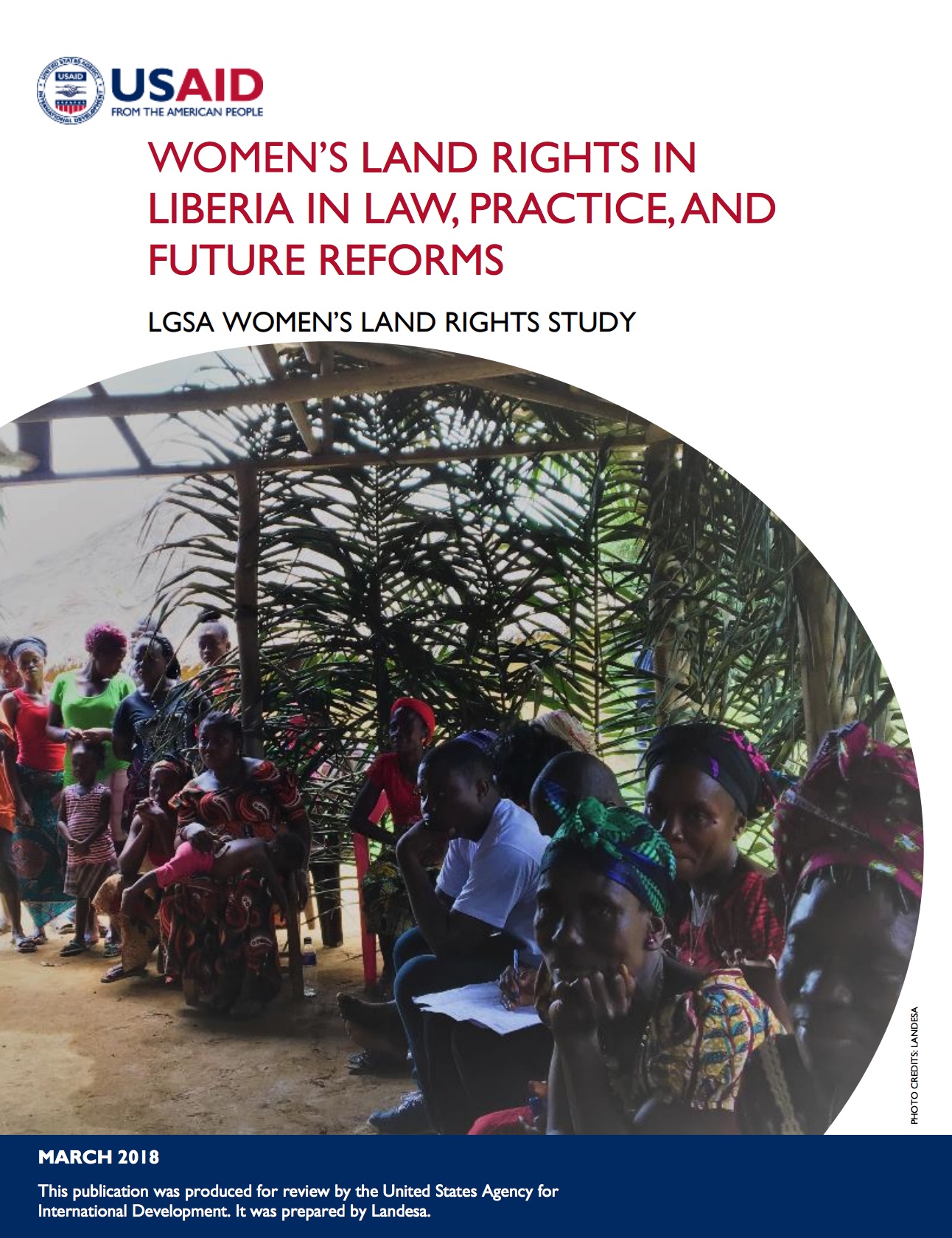Women's Land Rights in Liberia in Law, Practice, and Future Reforms
Land is the most important asset for many rural Liberian women and men, and is often a family’s primary source of cash income, food and nutritional security, health care, and education. Though women play a central role in agricultural production in Liberia, women’s rights and access to land are often not equal to those of men due to biases in the formal legal framework and customary law.


